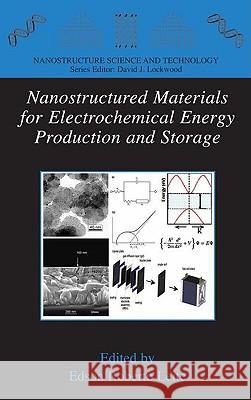Nanostructured Materials for Electrochemical Energy Production and Storage » książka
Nanostructured Materials for Electrochemical Energy Production and Storage
ISBN-13: 9780387493220 / Angielski / Twarda / 2008 / 250 str.
The major problem facing new energy conversion and storage technologies remains device ef?ciency. Projects based on nanostructured materials can yield improved performance in devices involving electrochemical reactions and heterogeneous catalysis, such as fuel and solar cells, batteries, etc. Nanoscale structures drama- cally alter the surface reaction rates and electrical transport throughout the material, causing a dramatic improvement in energy storage, conversion, and generation. Furthermore, the design of nanoscale materials to be applied in alternative energy devices is a predictable way to develop a wide range of new technologies for a more sustainable future. Therefore, the goal of this book is to present basic fundamentals and the most relevant properties of nanostructured materials in order to improve alternative energy devices. This book begins with a chapter by Gratzel ] summarizing the use of mesoscopic thin ?lms and hybrid materials in the development of new kinds of regenerative photoelectrochemical devices. Applications include high-ef?ciency solar cells. In chapter two, Ribeiro and Leite describe assembly and properties of nanop- ticles. The chapter presents a review on the properties and main features of nanoscale materials, emphasizing the dependence of key properties on size for energy purposes. A general description is also given of nanoparticle synthesi- tion methods (mainly oxides), focusing on advances in tailoring controlled shape nanostructures.











